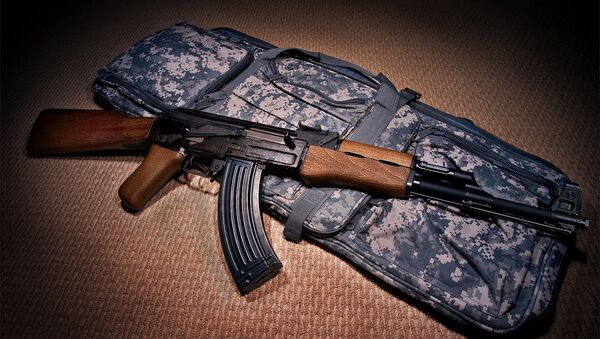French police union leader Alexander Langlois has revealed a grim picture is behind victorious messages – in some areas drug trafficking groups hold significant amounts of weapons, but the risks of large-scale police intervention are causing unrest.
Therefore, the Ministry of Internal Affairs prefers to put up with the creeping militarisation of the suburbs.
Today, a Kalashnikov assault rifle can be bought on the French black market for €2,000, and as a result, not only gang members are armed, but also a new category of people – the so-called “survivors” who are preparing for a “disaster”, often saving 20-30 pistols for a rainy day.
“It’s unexpected that our colleagues are given the opportunity to go all the way", Alexander Langlois, Head of the VIGI police union, said about a massive round-up. “Usually, the authorities are quite passive in responding to the arms trade".
According to confidential information from the Ministry of Internal Affairs from July 2012, the number of Kalashnikovs seized in France has doubled. “In 2011, we seized 3,910 firearms, which is 44% more than in 2010", then-Interior Minister Manuel Waltz said.
“It was an impressive PR war, but in reality, nothing was done, nothing moved forward", Alexander Langlois lamented. (…) “The general public isn’t interested in weapons; the fight against them doesn’t contribute to voter support".
“The police are ordered to solve priority tasks in accordance with the political situation, while they should ensure security in general".
A successful police raid doesn’t mean that the fight against this type of crime in France has become more effective. Although the possession of weapons without permission is still illegal, those held accountable are most likely not residents of the deprived suburbs of large French cities.
“It’s easier to catch collectors [who illegally store weapons] – it won’t create any uproar, and they won’t take revenge", Alexander Langlois said.
“We know that in some suburbs our interference may have resonance". But the authorities look away: “We know that there are weapons in the suburbs, regardless of whether the municipal majority is right or left; but we have no order to seize them", the head of the union said.
According to media reports, there are now 15,000 AK-47s in France. This data cannot be verified: “Everything that is illegal is hidden".
According to Alexander Langlois, the proliferation of weapons is connected to a change in the structure of the underworld:
“Several clans are involved in drug trafficking. Organised crime no longer controls it. Small clans open fire, settling scores among themselves".
“The era of robberies is almost over. There are much more profitable types of criminal activity that you can do without armed attacks. Today, criminals use weapons not to attack the police, but to settle scores among themselves. There is an exception: terrorism. But lately, terrorists have been using firearms less and less, while using a knife more often".
Weapons are available not only to those who sell them but also to the “survivors". They “buy weapons for self-defence, anticipating a catastrophe. Sometimes we find caches, with 20 to 30 weapons inside".
“The illegal possession of weapons in France is not a problem. About 20 years ago, it became easier after the collapse of the eastern bloc and with lower prices. But I think that the increase in the number of weapons is explained more by growing demand than by its availability".
On the black market, the AK-47 only costs €2,000-2,500. “Those who supply these rifles are engaged in a very profitable business. €2,500 for an AK-47 is a bargain. If this makes it possible to find a place in a foreign market, this is an extremely profitable investment", Alexandre Langlois explained.
“Those who intend to carry out an attack understand that they won’t be able to stay alive. So they can invest all their savings in weapons. In fact, weapons are accessible to everyone".
Alexandre Langlois sees the political climate as the being involved in this.
“If there was a massacre using weapons (it doesn’t matter for what reason), the authorities would really take action. But in a month they would still switch to solving a more urgent task".

